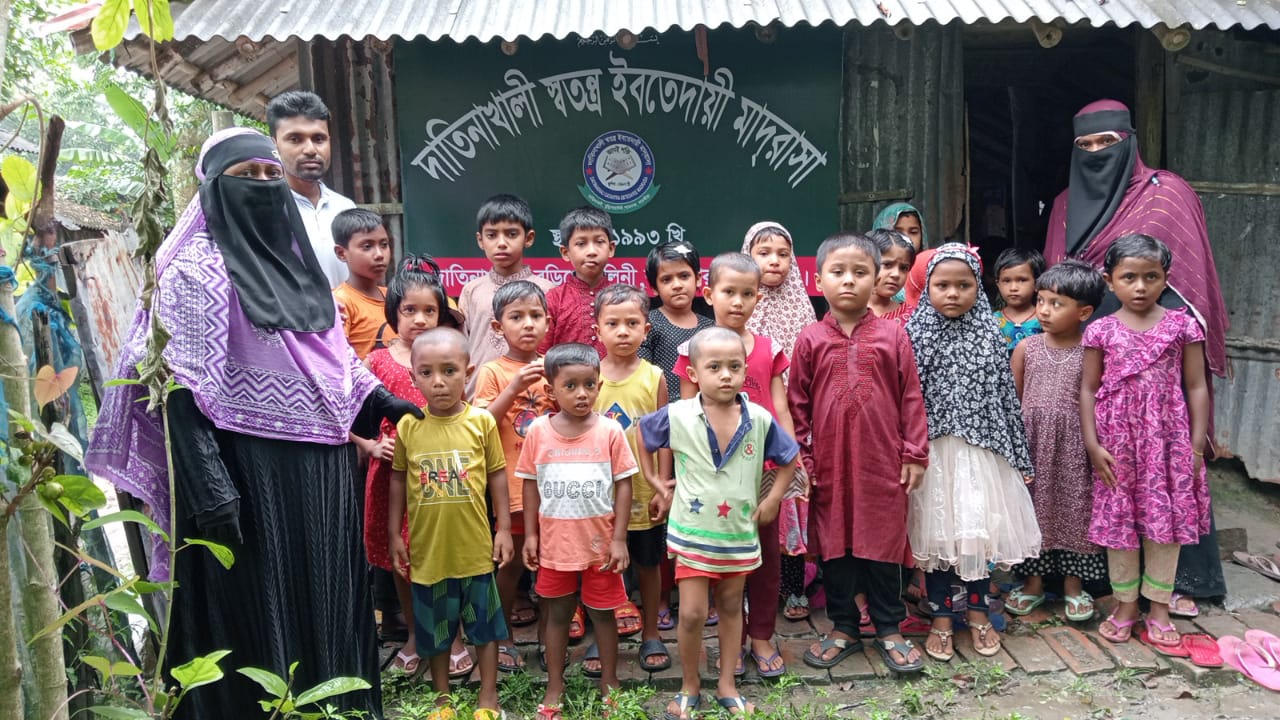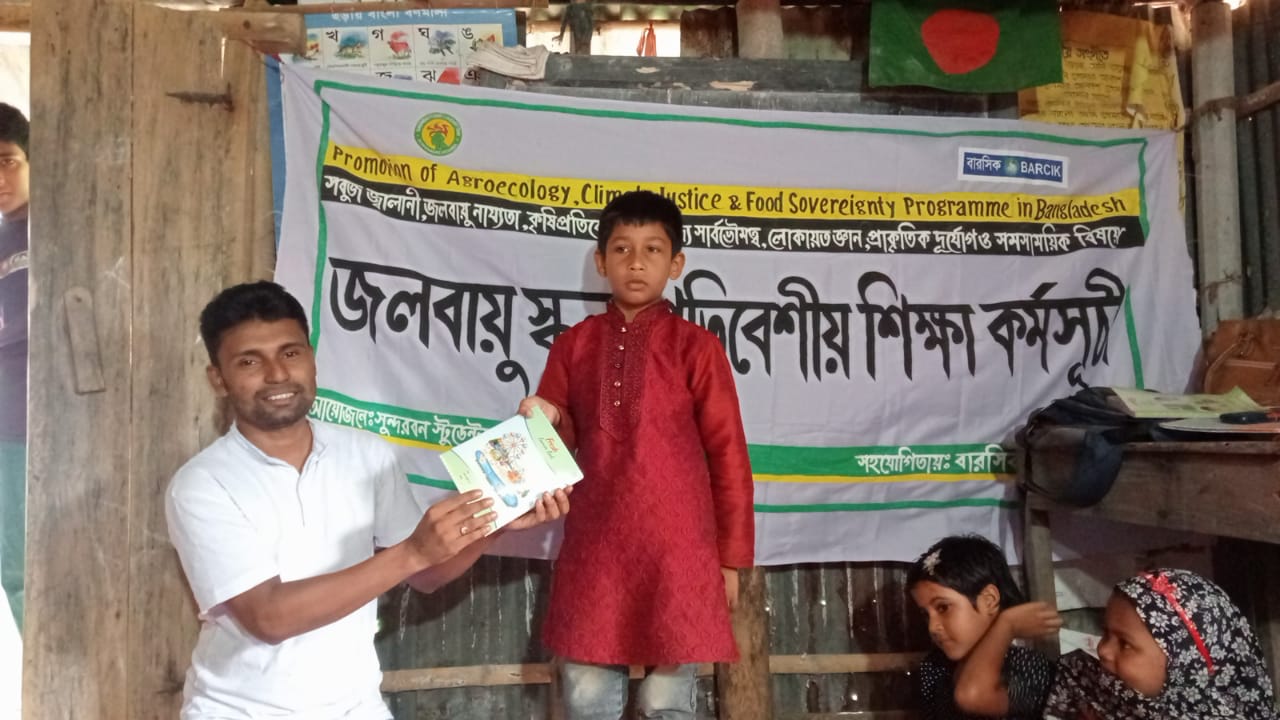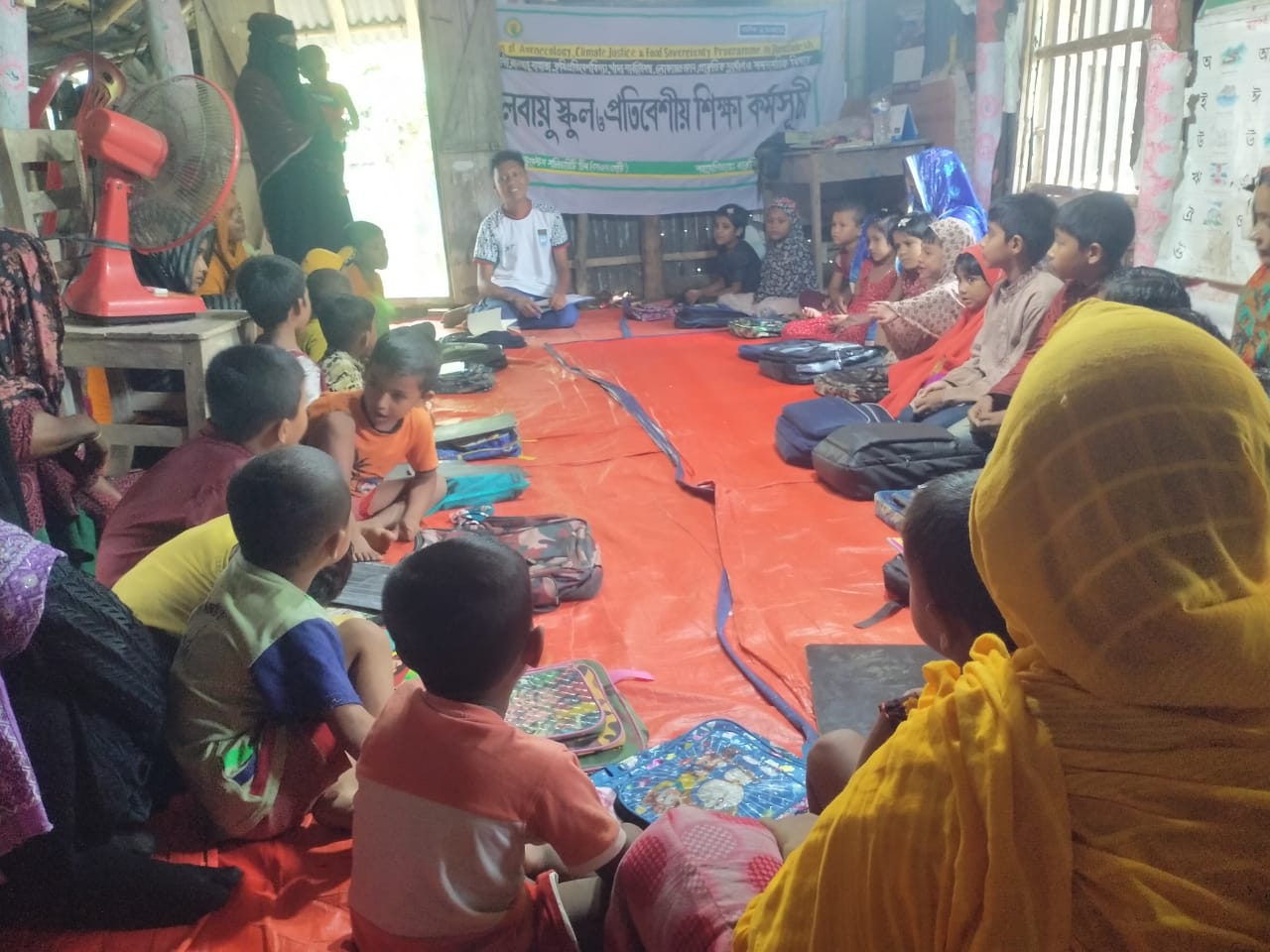Loading...
newsTicker.loading • newsTicker.loading
newsTicker.loading • newsTicker.loading
Loading...
Arthur Rahman
EcoBangla Correspondent
October 1, 2025
290
0

In a vibrant classroom buzzing with curiosity and excitement, students experienced something rare in Bangladesh's education system: a hands-on ecological education session that connected them directly with indigenous knowledge, sustainable practices, and environmental solutions. Organized by the Bangladesh Resource Center for Indigenous Knowledge (BARCIK), the session transformed abstract environmental concepts into tangible, actionable understanding.

The session centered on something often overlooked in mainstream education: indigenous ecological knowledge. BARCIK, an organization dedicated to preserving and promoting indigenous wisdom, brought this knowledge directly to students through interactive activities and real-world examples. Traditional seed preservation was a highlight. Students learned how indigenous communities maintain biodiversity by saving seeds from generation to generation, selecting varieties adapted to local conditions, and avoiding dependence on commercial hybrid seeds. They held traditional seed varieties in their hands – some hundreds of years old – understanding that these seeds represent resilience, food security, and cultural heritage. Natural farming techniques captivated the students. Without chemical fertilizers or pesticides, indigenous farmers produce healthy food using composting, companion planting, natural pest control methods, and crop rotation systems developed through centuries of observation. Students saw how these methods aren't primitive or backwards – they're sophisticated, sustainable, and increasingly relevant as chemical agriculture shows its environmental costs. The session emphasized a crucial message: indigenous communities aren't relics of the past – they're holders of knowledge essential for our sustainable future.



What made the session truly impactful was its participatory approach. Students didn't just hear about ecological practices – they experienced them. Seed identification and sorting had students working with diverse traditional seed varieties, learning to recognize characteristics that indicate quality, resilience, and suitability for local conditions. They practiced the careful handling and storage techniques that keep seeds viable for years. Composting demonstrations showed students how kitchen waste and organic materials transform into nutrient-rich soil. They built small compost systems, understanding the biological processes that turn "waste" into valuable resources. The lesson was clear: there's no such thing as waste in nature – everything cycles back. Traditional craft workshops connected ecology with livelihood. Students learned to create useful items from natural, renewable materials – basket weaving with local plants, natural dye production from flowers and leaves, and simple tools made from sustainable sources. These activities demonstrated that ecological living doesn't mean sacrifice – it means creativity and connection to materials and processes.

Bangladesh faces severe environmental challenges: climate change impacts intensifying yearly, agricultural land degraded by chemical overuse, water sources polluted and depleted, biodiversity loss threatening food security, and urban areas choking on waste and pollution. Yet mainstream education largely ignores environmental solutions, especially those rooted in indigenous and traditional knowledge. This session represents a crucial shift. By bringing ecological education directly to students, BARCIK is creating a generation that understands sustainability isn't a foreign concept imported from the West – it's deeply embedded in Bangladesh's own cultural heritage. Students are tomorrow's decision-makers. The environmental choices they make as adults – in agriculture, business, policy, and daily life – will determine Bangladesh's future. Exposing them to indigenous ecological knowledge now plants seeds that will grow into sustainable practices, respect for traditional communities, and innovative solutions that combine ancient wisdom with modern challenges. Indigenous knowledge is disappearing. As older generations pass away and young people migrate to cities, centuries of ecological wisdom risk being lost forever. By engaging students with this knowledge, sessions like this help preserve and revitalize indigenous practices, creating new generations who value and protect traditional wisdom. Environmental education builds hope. Bangladesh's environmental challenges can feel overwhelming, leaving young people anxious and powerless. But learning practical, proven solutions – especially those developed by communities that have sustained themselves sustainably for generations – empowers students with concrete actions they can take. Moving Forward Sessions like this need to be scaled up, integrated into regular curricula, and made accessible to students across Bangladesh. Every student deserves the opportunity to learn from indigenous ecological knowledge, to connect with sustainable practices, and to understand that protecting the environment isn't a burden – it's a return to wisdom that has always been here. BARCIK's work demonstrates that ecological education can be engaging, culturally grounded, and transformative. The students who participated in this session left as ambassadors for sustainable practices and indigenous knowledge – and that's exactly what Bangladesh needs.
Join the conversation and share your thoughts!
Be the first to share your thoughts!